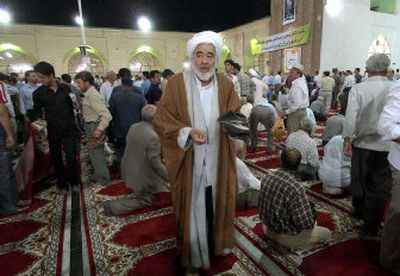Presidential race nears end in Iran

TEHRAN, Iran — A wild and Western-style presidential campaign closed Thursday after a finale of street rallies and ultra-polished ads that highlighted both Iran’s fast-moving social changes and how much the crucial election remains up for grabs.
The stakes are high in today’s balloting because of Tehran’s negotiations with the West over its nuclear program and its role as a patron of the Shiite Muslim majority in neighboring Iraq.
“This is more than just who will be president,” said Saeed Hajjarian, a top adviser to outgoing President Mohammad Khatami, who was prevented from running for a third term by the Iranian constitution. “This is how Iran will proceed in a very delicate time for this region.”
The narrow passageways of Tehran’s covered bazaar demonstrated the wide-open quality to the race. Posters for every candidate hang from the brick domes or market stalls — breaking a long tradition of bazaar merchants rallying behind one candidate.
“Iran is changing. We have our choices and we’re thinking independently,” said Abbas Partovi, whose shop sells colorful scarves that many young women now wear instead of the dark veils that became mandatory after the Islamic revolution of 1979.
The changes were obvious during the final hours of the official campaign period. Political rallies turned into street parties with dancing to Iranian rock and American rap — acts that could have meant arrest just a few years ago.
The Bush administration called the election illegitimate.
President Bush, in a statement released by the White House, said the election was designed to keep power in the hands of a few.
“The Iranian people deserve a genuinely democratic system in which elections are honest — and in which their leaders answer to them instead of the other way around,” he said.